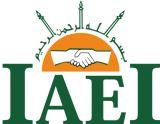PENERAPAN E-COMMERCE DALAM PENGUATAN DAYA SAING USAHA MELALUI STARTUP (STUDI KASUS PERUSAHAAN GPS MEDAN)
Abstract
Full Text:
PDFReferences
Adiningsih, Sri. (2019). Transformasi Ekonomi Berbasis Digital Di Indonesia: Lahirnya Tren Baru Teknologi, Bisnis, Ekonomi, dan Kebijakan di Indonesia. Jakarta: Gramedia Pustaka Utama.
Harahap, Isnaini. (2015). Ekonomi Pembangunan: Pendekatan Transdisipliner. Medan: FEBI UIN-SU Press.
Kementerian Komunikasi dan Informatika Republik Indonesia. (2019). Pengguna Internet di Indonesia. Diakses tanggal 14 Agustus 2019.
Sarwono, Jonathan dan K Prihartono. (2012). Perdagangan Online: Cara Bisnis di Internet. Jakarta: Elex Media Komputindo.
Sukandar, Dadang. (2017). Panduan Membuat Kontrak Bisnis. Jakarta: Visimedia.
Suyanto, M. 2003. Strategi Periklanan pada E-Commerce Perusahaan Top Dunia. Yogyakarta: ANDI.
Maryam, Siti. (2013). Penerapan E-Commerce dalam meningkatkan daya saing usaha. Jakarta: STIE Ahmad Dahlan.
Medriyansah. (2017). Peran Usaha Mikro Kecil dan Menengah (UMKM) Menurut Perspektif Ekonomi Islam (Studi pada Usaha Tempe di Desa Sumber Jaya Kecamatan Jati Agung Kabupaten Lampung Selatan. Lampung: IAIN Raden Intan.
MIKTI. (2018). Mapping dan Database Startup Indonesia. Diakses tanggal 20 Desember 2019 dari https://www.bekraf.go.id
Nurbaiti. (2019). Sistem Informasi Keuangan/ Perbankan. Diakses pada tanggal 28 Januari 2021. http://repository.uinsu.ac.id/5328/1/ Diktat_Nurbaiti_FEBI%20UINSU.pdf
Nuryanti. (2013). Peran E-Commerce Untuk Meningkatkan Daya Saing Usaha Kecil dan Menengah (UKM). Riau: Universitas Riau.
Zuhal. (2010). Knowledge and Innovation Platform Kekuatan Daya Saing. Jakarta: Gramedia Pustaka Utama
DOI: http://dx.doi.org/10.30821/se.v7i1.9997
Refbacks
- There are currently no refbacks.













